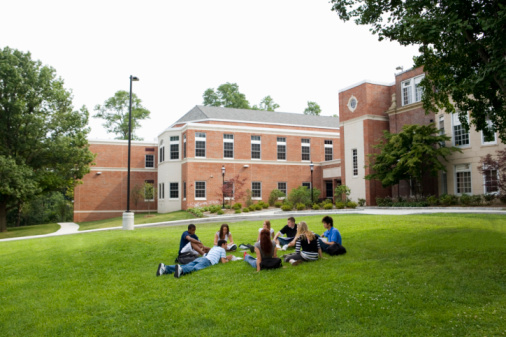
There is no doubt that visiting a prospective college or university is one of the best ways to experience the culture of a particular school. By the end of their junior year of high school, most students have compiled a short list of colleges that interest them. The schools on that list will have a mixture of criteria that they do or do not meet: ideal location, reasonable cost, academic rigor, courses of study, etc. Choosing among these colleges often comes down to how a place “feels,” but if you cannot visit them during the school year, what can you do? Should you visit college campuses in the summer?
What can all campus visits teach you?
No matter the season in which you visit, a campus tour allows you to explore the buildings and grounds of a given school, as well as its surrounding community. Perhaps an urban college appeals to you in theory, but you realize on your campus tour that you miss the open green spaces and quiet of a rural setting. Conversely, your claustrophobia may worsen when you see that your prospective home for the next four years consists of the campus, one or two restaurants, and endless miles of farm and forest.
Even if you are comparing colleges in similar settings, you may find that the neighborhoods near each campus significantly impact the atmosphere of a school. For example, I attended the University of Washington and Ohio State University. Both are large state schools located in mid-sized cities. Both have beautiful campuses. But the University of Washington is surrounded by independent coffee shops, ethnic restaurants, and used book stores. Ohio State University, in contrast, is bordered primarily by chain restaurants. This was an obvious difference to me, but other students may not have noticed. If you plan to live off-campus, a campus tour – at any time of year – can help you gauge a city or town’s student neighborhoods.
A campus tour will also include visits to campus buildings. Are these buildings well maintained? Do you like the feeling of ancient wisdom that seeps from the stones of 19th century construction, or are you more at home with modern buildings? This is a small but crucial consideration, as the buildings you live among can have an impact on how you experience your community.
What are the disadvantages of touring during the summer?
The answer to this question will vary from college to college. Some schools may seem abandoned during the summer months, while others may be quite busy. In both cases, you will not glimpse the campus at its liveliest times. You may not realize that you will be swimming through throngs of students during class breaks at a large college, or that you will continually see the same dozen people at a small school. You also may not be able to sit in on a college class or two.
In addition, you may struggle to assess how students truly treat one another. Are people on campus friendly and welcoming during the winter months too? Do they seem disinterested in strangers only because it is oppressively humid out? The student ambassadors and tour guides that you meet during a campus visit are typically hired because they are friendly and outgoing – which means they may or may not be representative of the student body as a whole. The summer student population may be equally as unrepresentative due to its smaller sample size.
So what should you do?
Whenever possible, visit prospective schools during the academic year. Remember that an in-person assessment of a campus can be invaluable to your final decision. If you are only able to visit colleges in the summer, you will need to consider the goals you would like each campus tour to achieve.
If visiting all the schools on your list is prohibitively expensive, do not immediately discount the possibility of a campus tour. You may be able to prioritize which colleges to go to – for example, say you have five schools on your short list. One of them seems ideal for you academically, and its rural location differentiates it from the other colleges. Visiting that one outlier will help you learn whether the setting is a positive or negative factor. Or perhaps you would like to major in a field like life sciences or visual art, where laboratory quality or studio space can have a profound impact on your education. Several of your target schools may make virtual tours available online, but one or two may not. Investigating the colleges or universities without online tours can be a very good use of your visitation budget.
Ultimately, visiting campuses during the traditional academic school year or during the summer is a highly personal decision. It will depend on cost and your overall touring goals. If summer is the best or only time that you can visit colleges and universities, there is truly no substitute for walking across campus and imagining yourself coming back next fall – and happily belonging there.
Brian Witte is a professional SAT tutor with Varsity Tutors. He earned his Bachelor of Science from the University of Washington and holds a Ph.D. from The Ohio State University.
More from Varsity Tutors:
More Must-Reads from TIME
- Why Trump’s Message Worked on Latino Men
- What Trump’s Win Could Mean for Housing
- The 100 Must-Read Books of 2024
- Sleep Doctors Share the 1 Tip That’s Changed Their Lives
- Column: Let’s Bring Back Romance
- What It’s Like to Have Long COVID As a Kid
- FX’s Say Nothing Is the Must-Watch Political Thriller of 2024
- Merle Bombardieri Is Helping People Make the Baby Decision
Contact us at letters@time.com